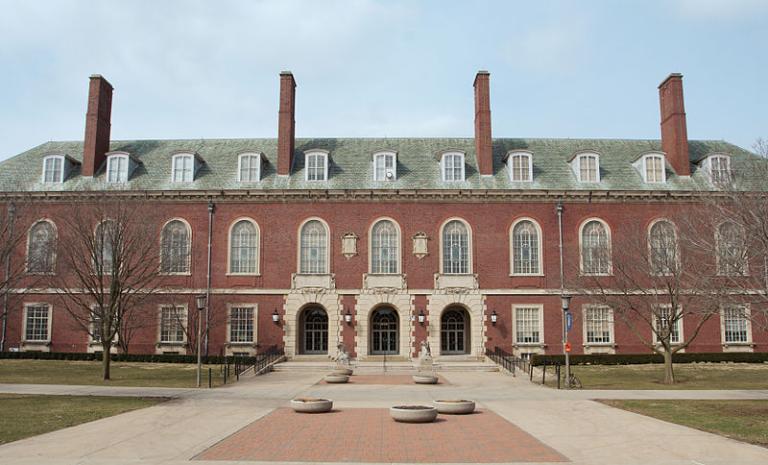
A Facebook friend posted about this yesterday; at various colleges & community colleges across the United States, adjunct professors “walked out” (or protested in other ways, including using class time complaining about the situation) of their classes to protest the lot in life of adjunct professors.
Details here, at the Chronicle of Higher Education, or here at Inside Higher Ed, or see the graphic at the blog “How Did We Get into this Mess?”
The basic story, for those unfamiliar with the situation, is this: once upon a time, universities hired adjunct faculty (that is, paid by the course, for variable and uncertain numbers of classes per semester) to smooth out fluctuations in demand for particular courses, and to benefit from the skills of professionals in the community, so that experts out in the working world, or early retirees, would teach part-time and at night. At the same time — this is hard to fathom any longer — when I was entering grad school (and I AM NOT THAT OLD), it was genuinely believed that the cohort of professors who were hired when the baby boomers entered college in large numbers, would be retiring, and fresh Ph.D.s would be needed to replace them. (Really! When I was making the decision to go to grad school, it seemed like a lot more of a well-defined career path than the vagueness of “what do you do with a public policy degree after graduation?”)
Of course, that didn’t work as planned. Large numbers of university graduates did indeed flock to grad school, but at the same time, universities discovered that they could easily hire adjuncts, at low pay rates per course, not just to smooth out demand, but to replace retiring tenure track professors, or to fill out instructional needs as their programs grew, or to allow tenure track professors to teach reduced course loads. And the would-be professors, graduates with perfectly-respectable doctoral degrees, accepted their new lot in life, supporting themselves (or being supported by a spouse) by driving from one university to the next, wherever they could pick up a class to teach, hoping against hope that someday soon, that hoped-for tenure track, or at least long-term, full-time instructor job would materialize.
(For those new to the blog, I myself was an adjunct professor, for a semester, before I figured out that I’d better find a different career path, so I think I speak with some authority here.)
But several things strike me:
First of all, for any individual trapped in the life of a so-called “Roads Scholar” it seems obvious that the best decision, on a personal basis, is to find a different career, stat. There are, of course, all kinds of reasons why they don’t, besides just holding out hope that that full-time job’ll come soon. There’s a certain feeling, once you’re a part of the academic world, that it’s a noble calling, far removed from the crass world of business, so that it’s inconceivable to leave. There aren’t the sort of resources to find a new career, that, say, a liberal arts undergraduate would have available to them, from career counseling to on-campus interviewing; instead, you’re very much on your own. And it can be difficult to convince a prospective employer that you’d be a good fit for the job they have on offer, as they’re both skeptical of your ability to fit in to the business world, and suspicious that you’ll leave for academia should a better job be on offer.
But, beyond that, Megan McArdle had a great pre-Valentine’s Day post on sunk costs. True, she was writing with respect to relationships, and her experience sticking with a boyfriend who was, in the end, not marriage material, because of the investment, in time if not in money, that she’d already made in the relationship. Why do adjuncts stick around? Because of their own sunk costs.
Second thought:
The situation with adjunct professors is repeated in multiple other occupations: consider manufacturing jobs, such as at the auto companies and other large manufacturers such as Caterpillar (see this article at Crain’s for context, or google “two tier payscales” or “two tier wages”) , where the workforce is split into two tiers. The established workforce has generous hourly wages and benefits, solely due to their union contract. But in order to accommodate the employer’s demands, they’ve accepted a two-tier model, in which new hires have significantly lower hourly pay and benefits. It has happened in another way in such countries as Italy and Japan, where protections for workers hired with full-time, permanent contracts are so generous that most new hiring now is done for contingent/contract/temporary workers, even if it’s to fill roles which themselves are long-term needs of the company. It happens anytime in which the established workforce has locked-in (whether by tenure, employment contracts, union contracts, or law) pay and benefits, agreed to during times of prosperity, now significantly above market, considering basic supply-and-demand in the labor force for the market/country, and unsustainable considering what the company can reasonably price its product for.
The protesters, and the commenters in the above-linked articles, generally are of the opinion that the way forward is unionization: by forming a union, and protesting and striking and following in the tradition of union organizers before them, they’ll get the universities to accede to their demands, and receive contracts for full-time employment at pay levels that they “deserve” owing to their doctoral degrees. And the “deserved” pay levels aren’t merely typical pay at community colleges for full-time instructors now, based on 5 courses per semester, but a workload equivalent to tenure-track hires, say, two courses per semester to allow time for personal research projects.* (Never mind that in this idealized world in which adjuncts are replaced by full-timers, there will be winners and losers among the now-adjuncts, as some perpetual part-timers become full-timers and others, unemployed.) But, of course, if it were this easy, then unions, in general, would still be going strong, and, everyone, having been unionized, would be receiving generous pay and benefits and spending four weeks each summer at their cottages Up North. Instead, some years ago, even in union-stronghold metro Detroit, Hudson’s employees (back before it became Marshall Fields and then Macy’s) rejected unionization, believing that the union wouldn’t be able to increase pay significantly enough to compensate for the cost of union dues. It just doesn’t work — companies/universities still have budgets to meet. It’s simply not possible to make the extra cash materialize, all the more so with tight budgets and funding cuts.
But — but, they say, the university just needs to trim the endlessly-growing administration. We see claims that the number of employees in university administration is growing exponentially, outpacing faculty hiring. But if this is the low-hanging fruit, why hasn’t it been plucked already?
* Here’s a comment from the Chronicle article linked to above, in response to my pushing back at the notion that Ph.D.s have an inherent right to a given salary level and teaching load:
Because all academics work “part time” by the definitions of those outside academia. And by that, I mean, they teach a reasonable amount (2-3 courses a semester), then engage in service and research, publish, attend national and international conferences, and deal with admin matters as well as student advising (which may include thesis supervision and the like). Because a PhD goes trough a number of hoops and training to get the degree. Because an actual scholar does research and is active in their field. And most importantly, because this is exactly what TT faculty do, and they aren’t a different human subspecies but simply people holding a position gradually turning extinct.
You pay more for more qualified instructors just as you pay more for lawyers or doctors, who also got a higher degree and also sweat through exams and qualifications, than you do for their assistants who did not, and going back to my barista example. If you believe people with higher degrees shouldn’t be paid more, don’t send your kids to college, let alone gradschool.
Which — well, wow, to think that a credential, by itself, should grant automatically you these privileges, and its an injustice if it doesn’t! I’m at a loss here.












